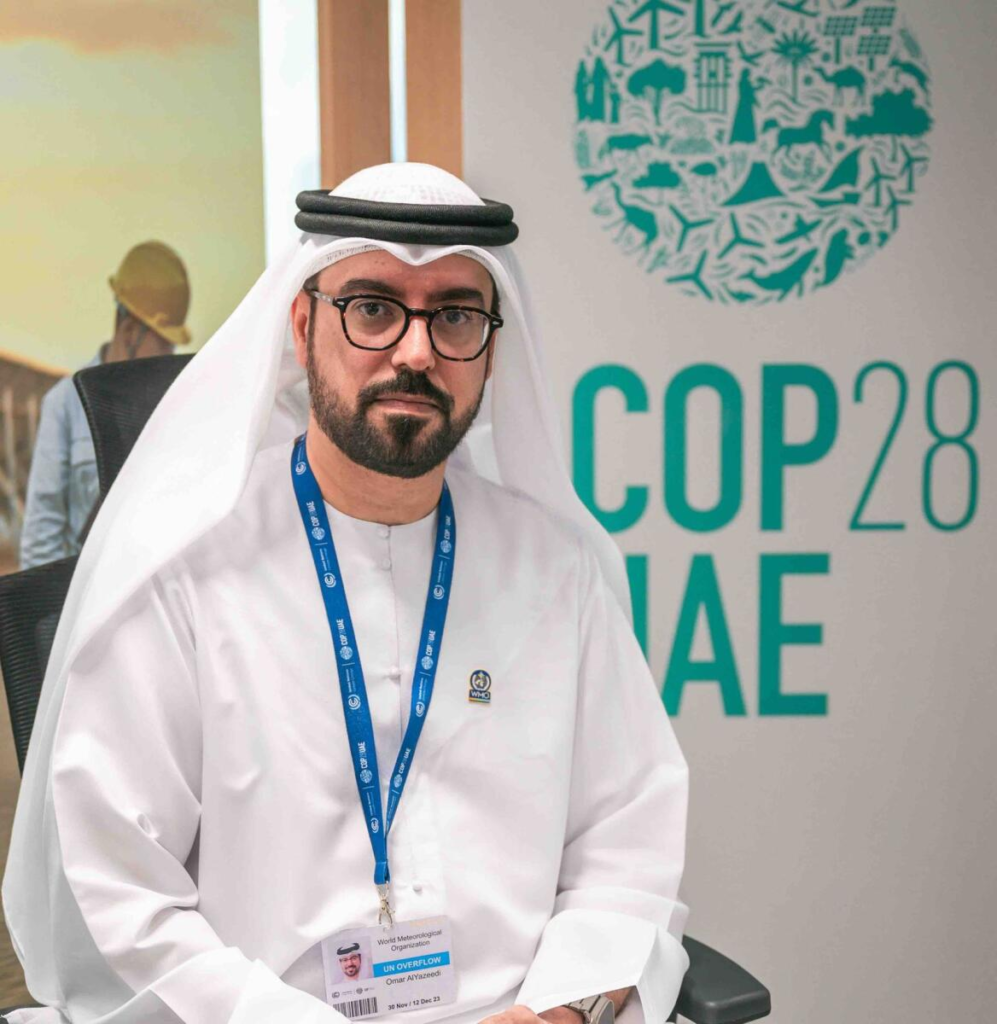The United Arab Emirates (UAE) has engaged to share its extensive expertise in cloud seeding to combat water scarcity across various regions worldwide.
Omar Al Yazeedi, deputy director general of the National Centre of Meteorology (NCM), highlighted this initiative at the ongoing 28th meeting of the Conference of the Parties of the UN Framework Convention on Climate Change (COP28) in Dubai.
Knowledge Sharing and Funding Commitment:

During COP28, the UAE announced its commitment to allocate $150 million toward water security solutions in vulnerable nations.
Al Yazeedi affirmed the UAE’s willingness to actively disseminate rain-enhancement technology, leveraging the nation’s advancements in cloud seeding.

Emphasis on Water at the Climate Summit:
Water scarcity has emerged as a primary concern at the UN Climate Summit, with the UAE contributing significantly through the participation of water experts.
Al Yazeedi underscored the UAE’s position as a leader in rain-enhancement science for over two decades, emphasizing how cloud seeding has amplified annual rainfall while reducing dependence on seawater desalination.
Al Yazeedi highlighted the potential of rain enhancement, particularly in regions facing aridity and semi-aridity.
He emphasized that cloud seeding can augment rainfall by 15 to 25 percent, rejuvenating groundwater and bolstering freshwater supplies crucial for agriculture, thereby enhancing food security.
UAE’s Research Programme and Technological Advancements:
The UAE Research Programme for Rain Enhancement Science (UAEREP) has been pivotal in refining cloud-seeding technology.
With up to $1.5 million funding for winning proposals, UAEREP has validated cloud seeding as a reliable rain-enhancement method. Recent additions of advanced cloud-seeding aircraft in the NCM fleet signify continuous technological progress.
Focus on Disaster Risk Reduction:
Besides cloud seeding, NCM’s engagement at COP28 includes advocating for ‘Early Warnings for All,’ a global initiative the World Meteorological Organisation endorsed.
Al Yazeedi stressed the importance of early warning systems in mitigating natural disasters, particularly in areas lacking weather stations, radars, or satellite access.














